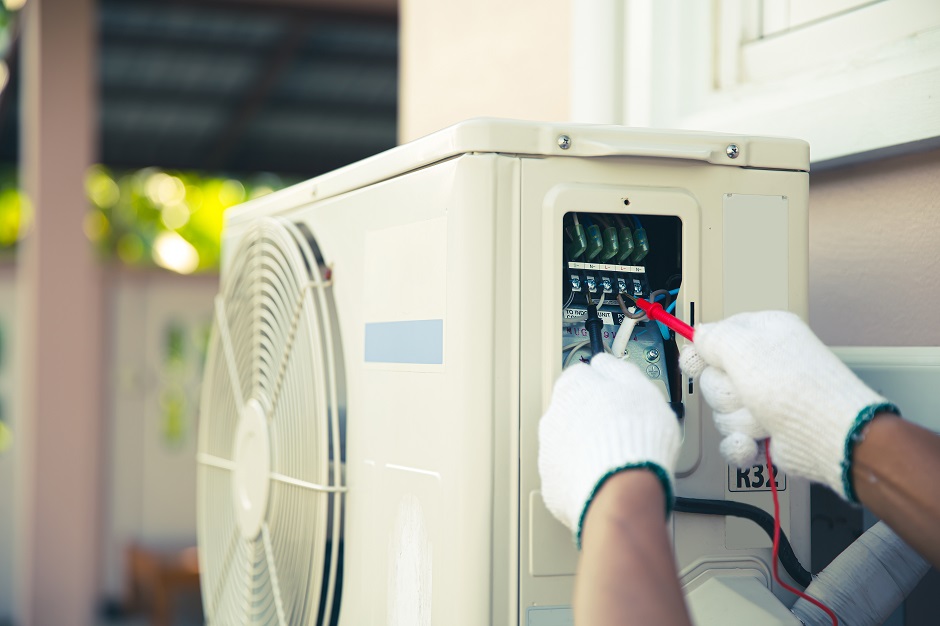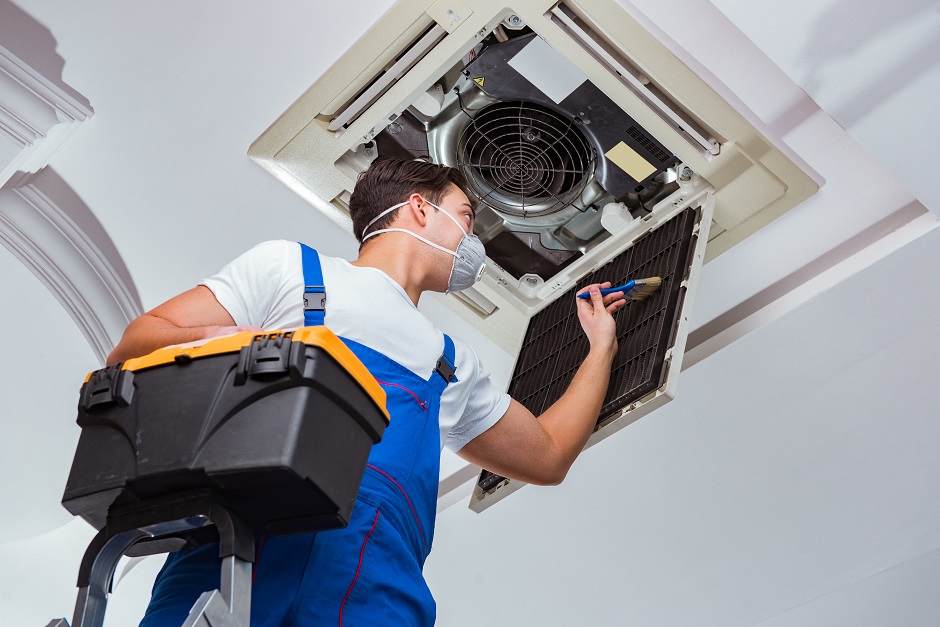Maintaining a well-functioning air conditioning (AC) system is crucial, especially during hot summer months. A properly tuned-up AC not only provides optimal cooling but also ensures energy efficiency and cost savings. In this article, we will explore the importance of AC tune-ups and how they can benefit residents of Brooklyn, UK.
Benefits of AC Tune-Up
Regular AC tune-ups offer several benefits that contribute to the overall efficiency and performance of your cooling system. By scheduling a professional tune-up, you can experience:
1. Enhanced Energy Efficiency
An AC tune-up helps improve energy efficiency, reducing the amount of electricity consumed by the cooling unit. During the tune-up process, the technician will inspect and clean the air filters, ensuring proper airflow. This helps the AC system operate smoothly, preventing energy waste and reducing utility bills.
2. Improved Cooling Performance
Over time, dust and debris can accumulate on the condenser coils and other components of the AC system, hindering its ability to cool effectively. During a tune-up, these coils are thoroughly cleaned, allowing the AC to efficiently transfer heat and maintain optimal cooling performance.
3. Extended Lifespan of the AC Unit
Regular maintenance, including tune-ups, can significantly extend the lifespan of your AC unit. By addressing minor issues and keeping the system clean, tune-ups prevent unnecessary wear and tear, reducing the risk of major breakdowns. This ultimately saves you money on costly repairs or premature AC replacements.
4. Cost Savings on Repairs and Replacements
By investing in regular AC tune-ups, you can potentially save a significant amount of money in the long run. Tune-ups allow technicians to identify and address minor issues before they turn into major problems. This proactive approach helps avoid expensive repairs or even the need for a complete AC replacement.
Understanding the AC Tune-Up Process
To better understand what an AC tune-up entails, let’s explore the key steps involved:
1. Inspection and Cleaning of the Air Filters
During an AC tune-up, one of the primary tasks is inspecting and cleaning the air filters. Over time, air filters can become clogged with dirt, dust, and other pollutants, obstructing the airflow and reducing the cooling efficiency. The technician will check the condition of the filters and either clean or replace them as necessary. This ensures that the AC system can effectively filter the air, improving indoor air quality and preventing strain on the system.
2. Checking and Tightening Electrical Connections
Faulty electrical connections can cause various issues with the AC system, such as intermittent cooling or complete system failure. As part of the tune-up process, the technician will carefully inspect the electrical connections, ensuring they are secure and free from any corrosion. If any issues are detected, they will be promptly addressed, minimizing the risk of electrical problems and enhancing the overall safety of the system.
3. Lubrication of Moving Parts
AC units consist of various moving parts, such as motors, fans, and bearings, which require proper lubrication to function smoothly. During a tune-up, the technician will lubricate these parts to reduce friction, minimize wear and tear, and prevent unnecessary strain on the system. This helps prolong the lifespan of the AC unit and ensures its optimal performance.
4. Refrigerant Level and Pressure Check
Proper refrigerant levels are crucial for the efficient operation of an AC system. During a tune-up, the technician will check the refrigerant level and pressure to ensure they are within the manufacturer’s recommended range. If the levels are low, indicating a refrigerant leak, the technician will locate and repair the leak before recharging the system. This helps maintain the cooling capacity and energy efficiency of the AC unit.
5. Cleaning the Condenser Coils
The condenser coils, located in the outdoor unit of the AC system, are responsible for releasing heat absorbed from the indoor air. Over time, these coils can accumulate dirt, debris, and even vegetation, obstructing the heat transfer process. As part of an AC tune-up, the technician will clean the condenser coils thoroughly, removing any buildup. This ensures efficient heat exchange and prevents the system from overworking, leading to better cooling performance and energy savings.
Finding a Reliable AC Tune-Up Service in Brooklyn, UK
When it comes to scheduling an AC tune-up in Brooklyn, UK, it’s essential to choose a reliable and professional HVAC company. Here are some key considerations:
1. Importance of Choosing a Professional HVAC Company
While some homeowners may attempt to perform AC maintenance themselves, it is generally recommended to hire a professional HVAC company for tune-ups. Professionals have the necessary expertise, experience, and tools to conduct a thorough inspection and maintenance of the AC system. They can identify potential issues early on and provide the necessary repairs or adjustments.
2. Checking for Certifications and Licenses
When selecting an HVAC company, ensure that they are licensed and certified. This demonstrates their commitment to quality and adherence to industry standards. Licensed technicians have undergone the required training and possess the knowledge to handle AC systems safely and effectively.
3. Reading Customer Reviews and Testimonials
Before making a decision, take the time to read customer reviews and testimonials about the HVAC company you are considering. This will give you insights into the experiences of other customers and help you gauge the company’s reputation and customer satisfaction level.
4. Comparing Pricing and Service Packages
It’s advisable to obtain quotes from multiple HVAC companies and compare their pricing and service packages. While cost is an important factor, it should not be the sole determinant. Consider the level of service offered, the expertise of the technicians, and the reputation of the company when making your decision.
DIY AC Maintenance Tips
In addition to scheduling professional tune-ups
annually, there are several maintenance tasks you can perform yourself to keep your AC system in good condition. Here are some DIY AC maintenance tips:
1. Regularly Cleaning or Replacing Air Filters
Check your AC’s air filters regularly and clean or replace them as needed. Clogged filters restrict airflow, reduce cooling efficiency, and strain the system. Clean filters improve indoor air quality and help the AC system operate more effectively.
2. Keeping the Outdoor Unit Free from Debris
Inspect the outdoor unit and remove any debris, such as leaves, twigs, or grass clippings. These obstructions can block airflow and hinder the heat transfer process. Maintaining a clear space around the unit allows for better performance and prevents unnecessary strain on the system.
3. Checking and Adjusting Thermostat Settings
Ensure your thermostat is set to the appropriate temperature and mode for optimal comfort and energy efficiency. Consider using programmable thermostats to schedule temperature adjustments based on your daily routine. This helps save energy and money by reducing cooling when the space is unoccupied.
4. Ensuring Proper Airflow in the Home
Make sure air vents and registers are not blocked by furniture, curtains, or other objects. Blocked vents restrict airflow and prevent efficient cooling. Keep them open and clear to allow the air to circulate freely throughout your home.
5. Scheduling Professional Tune-Ups Annually
While some maintenance tasks can be performed by homeowners, it is still crucial to schedule professional AC tune-ups annually. Professional technicians have the expertise and tools to identify and address potential issues that may go unnoticed during routine maintenance. They can fine-tune your AC system to ensure optimal performance and efficiency.
Common AC Problems that Can Be Prevented with Tune-Ups
Regular AC tune-ups can help prevent common problems that arise due to neglect or lack of maintenance. By staying proactive, you can avoid the following issues:
1. Reduced Cooling Capacity
If your AC is not properly maintained, its cooling capacity may diminish over time. Dust and debris can accumulate on the evaporator coils, reducing their ability to absorb heat from the indoor air. Additionally, low refrigerant levels or dirty air filters can also impact cooling capacity. Regular tune-ups address these issues and restore your AC’s cooling efficiency.
2. Frequent Breakdowns
Neglected AC systems are more prone to breakdowns, leaving you without cooling when you need it most. By scheduling regular tune-ups, technicians can identify and address potential problems before they escalate. This proactive approach helps minimize the chances of unexpected breakdowns and the associated inconvenience and repair costs.
3. High Energy Consumption
An inefficient AC system consumes more energy to cool your space. This results in higher utility bills and unnecessary environmental impact. Through thorough cleaning, proper lubrication, and optimization of system components, AC tune-ups improve energy efficiency, reducing your carbon footprint and saving you money.
4. Poor Indoor Air Quality
Dirty air filters and neglected AC systems can lead to poor indoor air quality. Dust, allergens, and pollutants circulate through the air, causing discomfort and potential health issues. Regular tune-ups ensure clean air filters and a well-maintained AC system, contributing to better indoor air quality and a healthier living environment.
Frequently Asked Questions (FAQs)
- FAQ 1: How often should I schedule an AC tune-up?
It is recommended to schedule an AC tune-up once a year, ideally before the cooling season begins. Regular maintenance helps keep your AC system running smoothly and prevents potential problems.
- FAQ 2: Can I perform a tune-up myself, or should I hire a professional?
While some maintenance tasks can be performed by homeowners, it is best to hire a professional for a comprehensive AC tune-upto ensure thorough inspection and maintenance. Professionals have the knowledge, experience, and specialized tools to identify and address issues that may go unnoticed by untrained individuals.
- FAQ 3: How long does an AC tune-up usually take?
The duration of an AC tune-up can vary depending on the size and condition of the system, as well as any specific issues that need attention. On average, a thorough AC tune-up can take anywhere from one to three hours. It’s best to consult with the HVAC company for a more accurate estimate based on your specific situation.
- FAQ 4: What happens if I skip regular AC maintenance?
Skipping regular AC maintenance can lead to decreased performance, increased energy consumption, more frequent breakdowns, and reduced lifespan of the AC unit. Neglected systems are also more prone to costly repairs and may compromise indoor air quality. Regular maintenance, including tune-ups, is essential to keep your AC running efficiently and prolong its lifespan.
- FAQ 5: Is an AC tune-up worth the investment?
Absolutely! Investing in regular AC tune-ups is worth it in the long run. By ensuring optimal performance and energy efficiency, you can save on energy bills, avoid expensive repairs, extend the lifespan of your AC unit, and enjoy a comfortable and healthy indoor environment.
Conclusion
Regular AC tune-ups are vital for maintaining optimal cooling performance, energy efficiency, and the longevity of your AC unit. By investing in professional tune-ups and performing basic maintenance tasks, you can ensure a comfortable and cost-effective cooling experience in your Brooklyn, UK home. Remember to schedule an annual tune-up, keep the system clean, and prioritize regular air filter replacements. Don’t neglect the importance of AC maintenance to enjoy uninterrupted cooling during the hot summer months.



